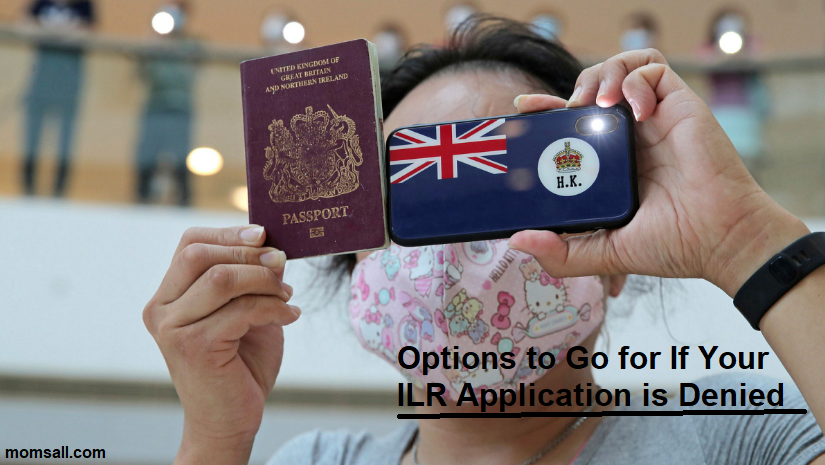Have you applied for Indefinite Leave to Remain (ILR) in the UK and received a denial? It can be disheartening, but don’t worry; options are still available. In this blog post, we’ll discuss why ILR applications are often denied, the requirements for ILR, and the choices you can go for if your ILR application is denied.
ILR Application Form
Before we dive into the reasons for refusal and the available options, let’s first understand the ILR application form. The ILR application form, also known as Form SET(M), is a document you must complete and submit to the Home Office to apply for Indefinite Leave to Remain. The form requires you to provide information about your employment, finances, and personal details, among other things.
ALSO READ: The Journey to British Citizenship as an Overseas Nurse
ILR Requirements
You must meet specific requirements to be eligible for Indefinite Leave to Remain. These requirements vary depending on the category under which you’re applying. However, some of the general requirements include:
- You must have lived in the UK for a specific period, usually five years or less in some cases.
- Must not have breached any immigration laws or conditions during your stay in the UK.
- You must meet the English language requirements.
- You must meet the Life in the UK test requirement.
How Many Years You Have to Work in UK to Apply for ILR?
As mentioned earlier, to be eligible for ILR, you must have lived in the UK for a specific period. The number of years you must have lived in the UK varies depending on your circumstances. For instance, if you’re on Tier 2 General visa, you need to have lived in the UK for five years before you can apply for ILR. On the other hand, if you’re on a Tier 1 Entrepreneur visa, you must have lived in the UK for three years before applying for ILR.
ALSO READ: Top 4 Ways to Relocate to the UK in 2023 as a Teacher
What is the Reason for Refusal of ILR?
ILR applications are often denied for various reasons, including:
- Inadequate supporting documents: You need to provide the required documents, such as your passport, proof of residence, and evidence of English language proficiency, among others. Provide these documents to ensure your application is accepted.
- Failure to meet the requirements: As discussed earlier, you must meet specific needs to qualify for ILR. You must meet these requirements to ensure your application is accepted.
- Criminal record: Your application may be refused if you have a criminal record.
- Overstaying: If you have overstayed your visa or breached any immigration laws or conditions, your application may be refused.
ALSO READ: Relocate to the UK in 2023 as a Domiciliary Support Worker
What Happens if ILR is Refused?
If your ILR application is refused, you’ll receive a letter from the Home Office explaining why. You may be able to appeal the decision if you think it’s wrong or if there were procedural errors. However, not all decisions are appealable, so seeking legal advice is essential.
Options to Go for If Your ILR Application is Denied
These include are the options you have:
- Reapplying: You can reapply for ILR if you think the reasons for refusal can be rectified by providing additional supporting documents.
- Administrative review: If there were errors in the decision-making process, you might be able to request an administrative review.
- Judicial review: If the decision was wrong, you might be able to apply for a judicial review. This is a legal process where a judge reviews the decision made by the Home Office to determine if it was lawful.
- Appeal: If your ILR application was refused, and you have the right of appeal, you may be able to challenge the decision in court. However, not all decisions are appealable, so it’s essential to check if you have the right to appeal.
- Applying for another visa: If your ILR application is refused, you may be able to use another type of visa, such as a work visa, student visa, or family visa, among others.
- Leaving the UK: If all other options are exhausted, you may need to leave the UK and apply for entry clearance from your home country.
ALSO READ: Easiest Countries to Get PR Faster than UK – List of Countries Offering Immigration
How Long Does the UK Embassy Keep Visa Refusal Records?
If your ILR application is refused, it will be recorded in the Home Office’s records. This record will be kept for ten years from the date of the refusal. If you reapply for a visa within this period, the Home Office will consider your previous refusal when making their decision.
Conclusion
Receiving a denial for your ILR application can be a frustrating experience, but keep hope. You can reapply, request an administrative or judicial review, appeal if you have the right to do so, apply for another visa, or leave the UK and apply for entry clearance from your home country. It’s essential to seek legal advice and carefully consider your options before deciding on your next steps.





